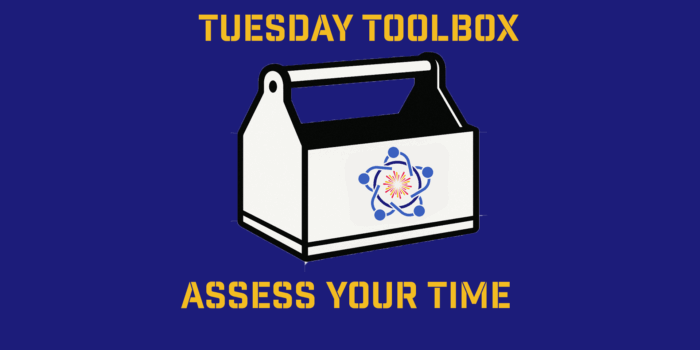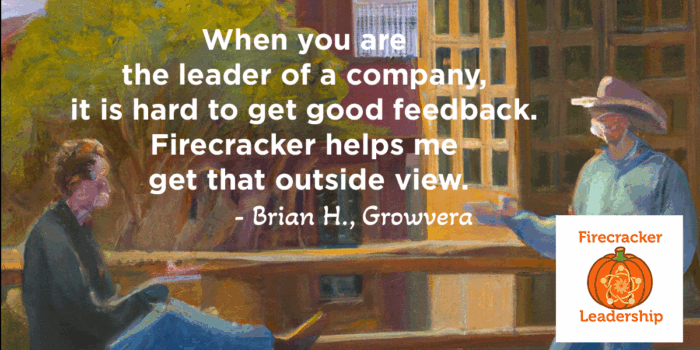My Wednesday Wish for You: To Know When to Quit We all have big goals, dreams that excite us, projects…
Vistage partners ITR Economics shares some update and insight in the current inflation trend.
Hello, I’m Brian Beaulieu, CEO and Chief Economist of ITR Economics. Coming to you today because I want to give you a brief update on our inflation outlook. Inflation pretty much ran the course as we expected it would in 2021, although it finished the year a little bit stronger. You’ve been reading about a 6.9, 6.8% rate of inflation. That’s what we would call a 1/12 rate of change. That’s taking the latest data, comparing it to one year ago, and that’s going to be the most volatile way there is to measure just about anything, including inflation.
On a 3/12 rate of change basis, we’re looking at about a 6.7% year end value. As yet we don’t have the December numbers, but that’s what we’re anticipating for the end of the year, and on a 12 over 12 basis, so the annual average inflation is going to come in at about 4.7. All of which is higher than the Federal Reserve’s comfort level, and we knew that was going to happen. The significant change to our outlook is that it looks like the top of this inflation cycle is going to be more rounded than we anticipated, we’re still getting leading indicator signals that the global economy, the US economy, they’re slowing down. And that means that the accelerating demand curve aspect of inflation is going to be moderating. And that is going to occur while the supply chain is getting itself squared away, slowly but surely over the course of ’22. But we’re still looking at a heightened rate of inflation compared to our previous forecast. In fact for our 12/12, so that annual average rate of inflation, we’ve raised that 2.25 percentage points. We’re now looking at a 5.1% rate of inflation in 2022, and that’s going to be higher than the Federal Reserve’s comfort level. And that explains why they’re talking about raising interest rates probably three times over the course of 2022.
We don’t, at this time, think that they’re going to be moving it aggressively enough, the interest rate, aggressively enough to do any damage to the economy. Even if they go up 50 BPS at a time, which would be aggressive for them. We’re talking about 150 basis points for the year. That’s not enough to hurt the economy. So, the economy is already going to be slowing, we think through mid-2023, but some people are going to equate that slowing, which is already in the cards as far as we’re concerned based on leading indicators, they’re going to attribute that to the Federal Reserve lowering of interest rates. So I think the political and economic aspects of this, they’re going to get very interesting.
We have inflation continuing to moderate all the way through 2003. And the economy itself is moderating, slowing in its rate of growth until about mid-2023. And it’s normal for the CPI to lag like GDP or US industrial production by one to two quarters. So we expect moderating rates of inflation in 2003, and that probably is going to give the Federal Reserve some breathing room in terms of putting interest rates up even higher. Especially when you think about the political economic pressures they’re going to be facing with being blamed for the slowdown.
We see the economy coming back in the second half of 2023, even stronger in 2024. And we see inflation coming back over the course of 2024. Now this is the new aspect of our outlook. We haven’t seen this through the ITR trends report. In 2024, we’re anticipating we’re going to see an annual average rate of inflation of about 4.1%. Again, well above the Federal Reserve’s comfort range. We think it’s in 2024, and again, in 2025 that you’re going to see the interest rates pushed up to a level that begins to nick the economy and finally perhaps ties into that 2026 downturn.
So what do we do with this as business owners, operators? You need to find out which of your markets are interest rate sensitive and anticipate what that may mean to you come 2024, ’25. Right now, I think in ’22, ’23, we’re just still worrying about supply chains, getting those normalized. Stock market’s still a risk, but I don’t see interest rates hurting you, but you might as well know it’s coming at you for ’24, ’25 when those interest rates are going up. Some markets are going to get hurt. Some markets aren’t very interest rate sensitive, but we’re going to be doing at ITR is taking time in ’22 to help identify those markets, those segments of the economy that are more interest rate sensitive than others. Well, we’ll bring that to you in future Trends Talks. That’s the way it looks to us right now. And thank you for listening to this Trends Talk. I’m Brian Beaulieu for ITR Economics.



